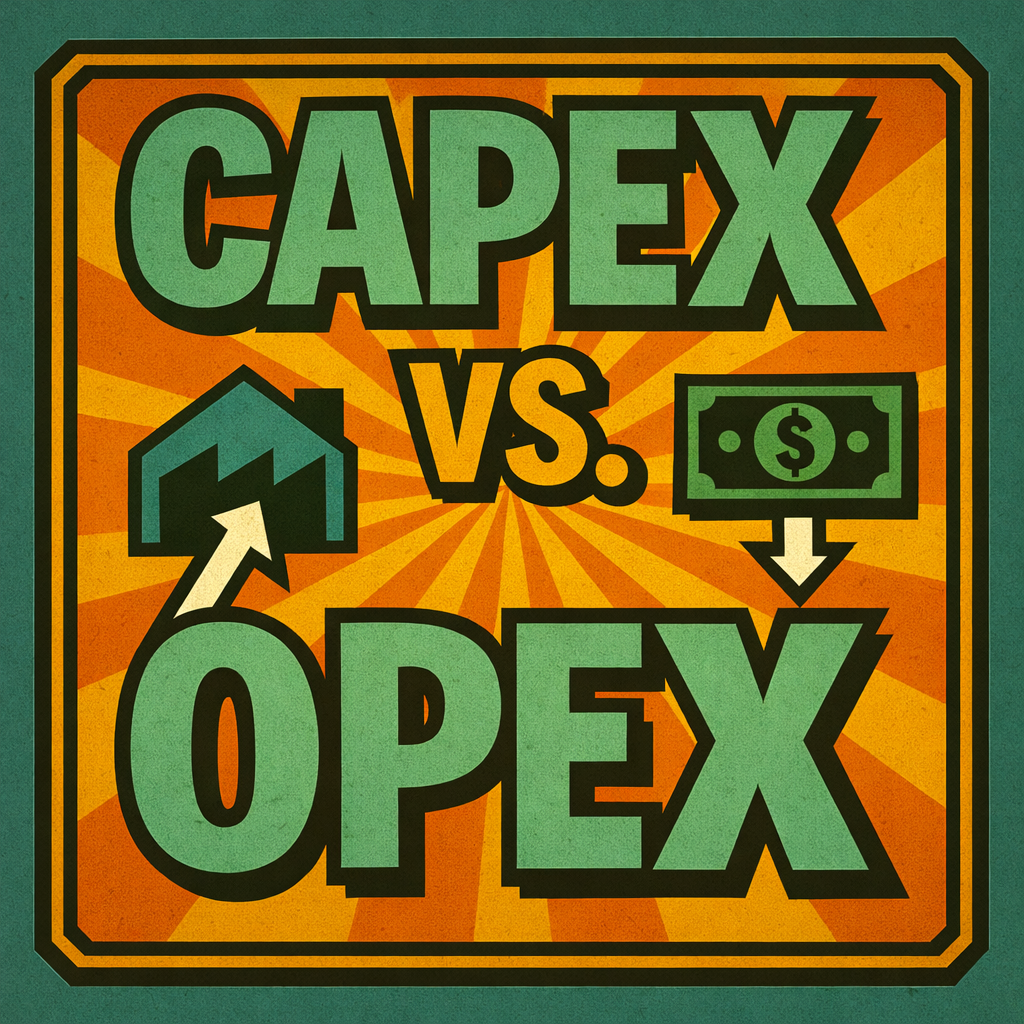
CapEx vs. OpEx
“CapEx is bricks, OpEx is fuel.”
Understanding the Difference Between Investment and Expense
Every business spends money — but how that money is spent matters.
There are two main types of spending:
Capital Expenditures (CapEx) → Money spent on long-term investments like buildings, equipment, or technology that will benefit the business for years.
Operating Expenses (OpEx) → The ongoing costs of running the business — payroll, rent, utilities, supplies, subscriptions, etc.
The difference defines whether spending is about building value or keeping the business running.
Key Distinctions
| Category | CapEx (Capital Expenditure) | OpEx (Operating Expense) |
|---|---|---|
| Purpose | Invests in assets that provide future benefit. | Covers day-to-day operating costs. |
| Examples | Buying machinery, vehicles, software systems, facility upgrades. | Salaries, rent, utilities, marketing, SaaS subscriptions. |
| Timing | Large, infrequent purchases. | Regular, recurring payments. |
| Accounting Treatment | Capitalized (recorded as an asset, depreciated over time). | Expensed immediately on the P&L. |
| Cash Flow Impact | Big upfront hit to cash flow. | Steady, predictable outflows. |
Business Impact
Strategic Insight: Knowing the difference helps you plan for both short-term costs and long-term growth.
Cash Flow Management: CapEx can create short-term strain; OpEx affects monthly liquidity.
Tax Treatment: CapEx is depreciated; OpEx is fully deductible in the current year.
Financing Decisions: CapEx often requires borrowing or leasing; OpEx usually comes from operating cash flow.
Scenario - Capital Expenditure (CapEx)
A manufacturer buys a new $250,000 CNC machine.
The cost is recorded as an asset on the balance sheet.
The machine is depreciated over 10 years.
Scenario - Operating Expense (OpEx)
The same company pays $5,000/mo. for design software.
The cost is recorded as an expense on the P&L.
Cash flow impact is smaller and spread evenly.
⚠️ Common Pitfalls
Treating CapEx like a simple expense, underestimating its future impact.
Ignoring depreciation schedules — leading to distorted profitability.
Over-investing in assets that don’t produce enough return.
Failing to budget for maintenance, upgrades, or replacement cycles.
🪙 Best Practices
Plan ahead: Schedule CapEx purchases within a multi-year budget.
Balance growth and liquidity: Don’t let large investments choke cash flow.
Evaluate ROI: CapEx should generate measurable long-term return.
Separate funding sources: Finance CapEx through long-term debt or equity; cover OpEx with operating cash flow.
Track depreciation: It affects both profitability and asset valuation.

Takeaway
CapEx builds the business for tomorrow. OpEx keeps it running today.
Every dollar spent has a job — some dollars build, others sustain.
Mastering the difference between CapEx and OpEx helps business leaders make better investment, budgeting, and financing decisions.

